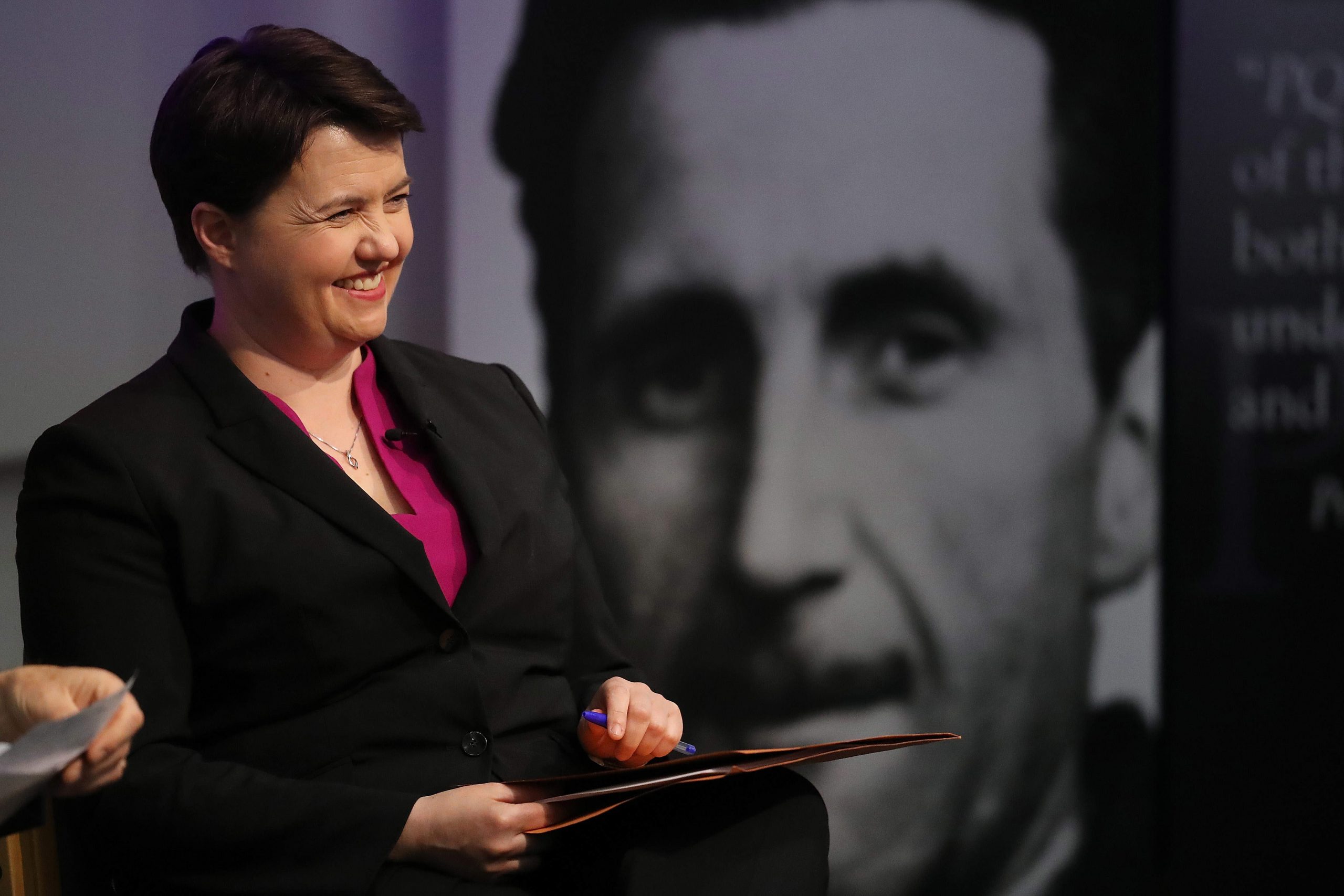
“In Scotland, political nationalism has introduced the idea that only one side of the constitutional divide can be the authentic voice of ‘the people of Scotland’,” Ruth Davidson said at the Orwell Foundation in London. “That only it has the right to be heard.”
A moment later, a man in the audience sitting at the back of the hushed lecture theatre began to shout. Davidson, a former army reservist, carried on. The implication, she said, was that “those who are not orthodox” are “are alien, we are other”. And then, veering off the pre-written speech, she added: “We deserve to be shouted down.”
The heckler didn’t get it. But we did. Davidson may have come to prominence for her imaginative photo ops, but she is one of the Tories’ most reflective thinkers. It is her understanding of Scottish unionism that has propelled her to centre stage, and puts her party – officially the Conservative and Unionist party – in sight of a dozen seats in the general election 2017.
In a tribute to George Orwell, Davidson borrowed his distinction between patriotism and nationalism to dissect the current state of Scotland. Patriotism, in her eyes, is an attachment to a place that simultaneously acknowledges you could be born anywhere else: “Patriotism simply says: Here’s great. Come on in, the water’s lovely.”
Nationalism, on the other hand, is “a state of mind where one ideology, one myth, must take precedence over all else and which demands people support one camp or another”. It is “the dichotomisation of a population into the authentic and the inauthentic”.
In Scotland, she contends, “nationalism runs deep”, and is “a part of the Scottish psyche”. Even paid-up Unionist politicians like the early 20th century novelist John Buchan declared: “Every Scotsman should be a Scottish nationalist.”
Davidson believes this kind of nationalism is out of control, and she has plenty of evidence to back it up (the heckler was Exhibit A). In her speech, she quoted the former Scottish First Minister Alex Salmond, who declared that “no self-respecting Scot” would accept a “Westminster Prime Minister…undermining Scottish nationhood”. His successor as First Minister, Nicola Sturgeon, responded to the Tory gains in the local elections at the expense of Labour by declaring “Labour let Scotland down.”
What makes the half a million who voted Tory so unScottish, Davidson wanted to know. She was born in Scotland and spent her entire career there but “apparently, I have to choose between being Scottish or Conservative.”
Davidson knows how to skewer nationalism. Her definition of patriotism matters to pro-union Scots who believe the saltire has been politicised and their identity hijacked. She cares so much about the question that she travelled down to London in the middle of an election campaign to speak to an audience of London academics. When I asked her if there wasn’t any political benefit to her position, if she wasn’t in fact the perfect enemy for the SNP (another Orwellian trope), she said:
“Genuinely, if it came to a choice between the country or the party, for me, it’s the country every day of the week and twice on a Sunday. If we sort this, and the Tory party goes downhill, obviously I’ll be sad about that, but I’ll still be proud about the part we played in standing up for our place in the UK.”
But her analysis could easily apply to English nationalism post-Brexit as well. Davidson shied away from parallels between Scotland, and England. She argued that Theresa May’s “strong and stable” campaign message was a world away from “Make America great again” or Marine Le Pen’s “In the name of the people”.
Yet Davidson’s moderation throws the current nationalist mood into sharp relief. Challenged by a former refugee on the xenophobia she now witnessed, Davidson responded: “If public figures don’t speak up and this is allowed to go unchecked, it will get worse. And public figures do need to step up, and I agree with you, and I take responsibility for that.”
Which public figures she did not say. But it is surely something the woman inspiring “Crush the Saboteurs” headlines might wish to ponder.






